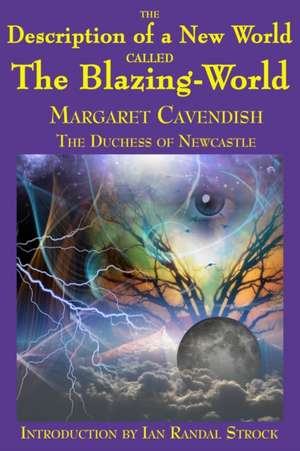The Description of a New World called The Blazing-World
Autor Margaret Cavendishen Limba Engleză Paperback – 25 aug 2020
| Toate formatele și edițiile | Preț | Express |
|---|---|---|
| Paperback (1) | 56.13 lei 6-8 săpt. | |
| FANTASTIC BOOKS INC – 25 aug 2020 | 56.13 lei 6-8 săpt. | |
| Hardback (1) | 133.13 lei 6-8 săpt. | |
| FANTASTIC BOOKS INC – 24 aug 2020 | 133.13 lei 6-8 săpt. |
Preț: 56.13 lei
Nou
Puncte Express: 84
Preț estimativ în valută:
10.74€ • 11.66$ • 9.02£
10.74€ • 11.66$ • 9.02£
Carte tipărită la comandă
Livrare economică 22 aprilie-06 mai
Preluare comenzi: 021 569.72.76
Specificații
ISBN-13: 9781515424161
ISBN-10: 1515424162
Pagini: 108
Dimensiuni: 152 x 229 x 7 mm
Greutate: 0.17 kg
Editura: FANTASTIC BOOKS INC
ISBN-10: 1515424162
Pagini: 108
Dimensiuni: 152 x 229 x 7 mm
Greutate: 0.17 kg
Editura: FANTASTIC BOOKS INC
Notă biografică
Margaret Cavendish (1623 - 15 December 1673) was an English aristocrat, philosopher, poet, scientist, fiction-writer, and playwright during the 17th century. She is praised for writing under her own name at a time when most women writers published anonymously. Her writing addressed a number of topics, including gender, power, manners, scientific method, and philosophy. She was the first woman to attend a meeting at the Royal Society of London in 1667, and she criticized and engaged with members and philosophers Thomas Hobbes, René Descartes, and Robert Boyle. She has been claimed as an advocate for animals and as an early opponent of animal testing.
